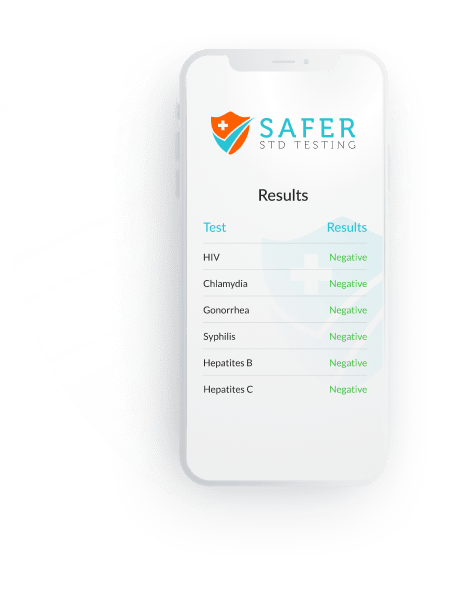


Activities That Spread Hepatitis B Include:
However, hepatitis B is not spread through hugging, coughing, sneezing, or breastfeeding. While kissing by itself does not spread hepatitis B, transmission of the virus is possible if rigorous kissing with dental appliances or braces causes bleeding. Hepatitis B is not spread through food and water.
Due to the way the virus is transmitted, these groups are at risk for hepatitis B:
Screening means getting tested for a disease before it starts to cause symptoms or serious health problems. The following groups should be screened for hepatitis B:
Only 30 to 50% of people aged 5 years or older with acute hepatitis B have symptoms (4). Most younger children and people with low-functioning immune systems have no symptoms of the infection. When symptoms are present, they include:
On average, it takes 90 days for a new hepatitis B infection to cause symptoms, but this incubation period can be as short as 60 days or as long as 150 (4). When present, symptoms usually last for several weeks or months. The symptoms are usually mild, but in rare cases, can be severe enough to require care in the hospital. Symptoms of hepatitis B can persist for up to 6 months.
The risk of progressing from acute to chronic hepatitis B depends largely on the age when the infection started. Approximately 90% of infants born to infected mothers will develop chronic hepatitis B. The risk of progression is lower when the infection starts in older children (25-50%) and adults (5%) (4).
Chronic hepatitis B usually does not cause symptoms.
If the patient develops cirrhosis or liver cancer, potential symptoms (5)(6) include:
It is recommended to go to the ER or see a health care provider as soon as possible if you have these symptoms:
The hepatitis B virus can damage the liver cells, which causes certain liver enzymes to leak out of the cells and into the bloodstream. The concentration of the liver enzymes is easily measured in a blood test.
Acute hepatitis B can progress to chronic hepatitis B.
Complications of untreated chronic hepatitis B include:
Hepatitis B virus can reactivate after a previous period of inactivity, especially in patients with a weakened immune system or in those receiving treatment for hepatitis C (another virus that infects the liver).
Fulminant liver failure arises out of acute hepatitis B infection as well as reactivation of chronic hepatitis B. Although this complication is rare, hepatitis B is the most common viral cause of fulminant liver failure (7). The liver is severely damaged and does not function properly, resulting in rapid onset of symptoms such as the following:
In some cases, patients with fulminant liver failure need to get a liver transplant.
Pregnant women can pass hepatitis to their infant. Reducing the mother-to-infant transmission has been a major focus of lowering hepatitis B rates.
Hepatitis B infection has several potential stages. Not everybody with the infection goes through all the stages.
A panel of blood tests will detect pieces of the hepatitis B virus (antigens) as well as antibodies that your body makes against the virus.
Possible test results (4) are:
Health care providers determine the precise stage of hepatitis B infection by reviewing all the positive and negative results of the above tests as well as the patient’s medical history.
Before starting treatment for Hepatitis B, your health care provider may ask about the following:
The health care provider may also run several tests:
The goals of treating chronic hepatitis B are to suppress the activity of the virus and reduce the risk for long-term complications. Currently available treatments can lower the virus DNA concentration but they do not completely remove the hepatitis B virus from the body.
There are 6 antiviral medications approved in the U.S. for treating chronic hepatitis B in adults (8):
When deciding on a treatment, health care providers must consider many factors such as the extent of liver damage, stage of the disease, amount and type of hepatitis B virus present, and the patient’s other medical issues.
During and after treatment, monitoring is performed on the hepatitis B DNA levels and liver enzyme levels.
People with active hepatitis B infection should do the following to avoid further liver damage:
A vaccine for hepatitis B is available. Vaccines work by stimulating your body to make antibodies against the virus to fight off the infection.
The hepatitis B vaccine is usually given as 3 doses — at month zero, one, and six. Some formulations combine the hepatitis B vaccine with vaccines for other infections.
For healthy people who get the vaccine when they’re older than 6 months, the vaccine protects against hepatitis B infection for 30 years or more (4).
The following people should have the hepatitis B vaccine (4):
The vaccine is safe to administer to pregnant women.
People who have been exposed to hepatitis B should start the vaccine series as soon as possible to reduce the chance of becoming infected. In the case of an infant being born to hepatitis B-positive woman, the infant should be given hepatitis B immune globulin as an additional step to reduce the chance of infection (8). The immune globulin contains large amounts of hepatitis B antibodies. There are other high-risk situations when the immune globulin should be given as well.
The U.S. has several strategies to reduce the overall population rate of hepatitis B (9):
Certain practices are recommended for people with active hepatitis B infection (positive for HBsAg) to prevent transmission of the virus to others.
The role of antiviral treatment for acute hepatitis B has not been clearly determined.
Researchers continue to search for a cure for hepatitis B.
Question: Why is the hepatitis B vaccine recommended for all infants?
Answer: Hepatitis B infection in infants poses a significant risk for chronic infection later. The vaccine is safe and effective for infants. Hepatitis B test results are not always available for pregnant women.




